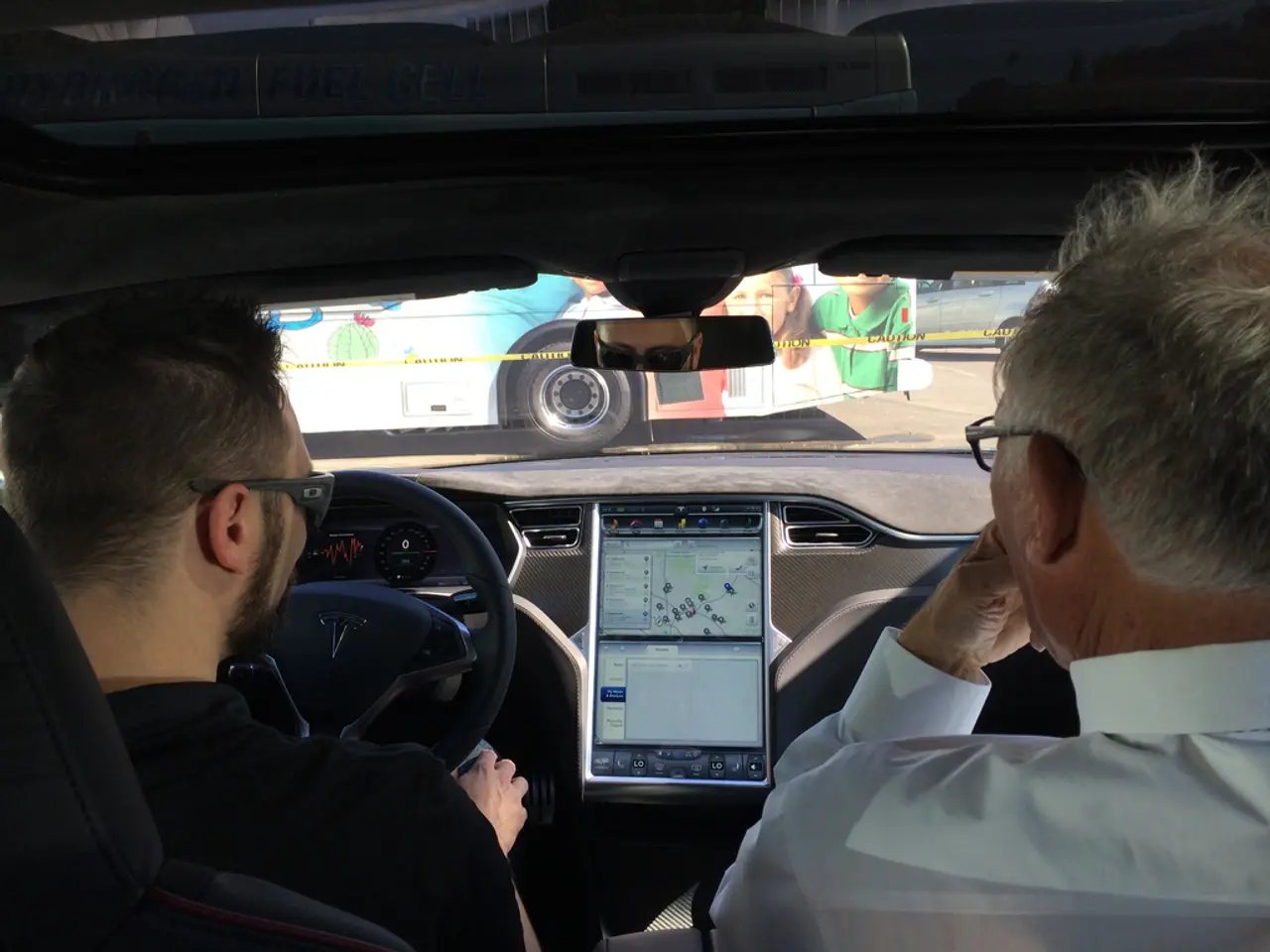Congressional representatives advocate for Federal Trade Commission's scrutiny of automakers' data-sharing procedures
A growing number of major automakers have come under fire for sharing sensitive driving data with third parties such as data brokers and insurance companies without proper consent, raising privacy concerns.
According to recent investigative reports, General Motors (GM), Honda, and Hyundai have been found to collect detailed driving behavior data (including trip history, speed, and feature use) and share it without adequate transparency or user permission[1][3].
The practices of these automakers have triggered regulatory action, including a sweeping investigation under laws like the Deceptive Trade Practices–Consumer Protection Act in Texas, targeting automakers for potentially secretive data-sharing schemes[2].
GM, for instance, provided bulk, de-identified location data from its cars to an unnamed commercial partner, which it referred to as "Company A." However, the company refused to identify this partner, and Sky News reported in 2019 that GM provided an "in kind" investment of driver data to a British data broker named Wejo, alongside a cash investment in the company[1].
Similarly, Hyundai shared data from 1.7 million vehicles with Verisk between 2018 and 2024, for a total of $1,043,315.69, or 61 cents per car[1]. Honda shared data from 97,000 cars with Verisk between 2020 and 2024, for a total of $25,920, or 26 cents per car[1].
The findings show that many automakers share sensitive consumer driving data without consumers’ full knowledge or explicit consent, prompting ongoing legal and regulatory scrutiny focused on consumer data privacy protections[1][2][3].
In addition, some insurance companies may use telematics data to raise premiums above the rate a consumer would have paid without telematics data, according to an insurance industry trade association expert[1].
Consumer advocacy groups such as Consumer Reports urge the Federal Trade Commission (FTC) to hold automakers accountable for these privacy violations and call for stronger data privacy laws with clear consent requirements, data minimization, universal opt-outs, and strict rules for data brokers who sell personal information[3].
The FTC has also taken action against companies unlawfully selling location data linked to consumers, signaling increased enforcement interest in this sector[3].
Senator Ed Markey and Ron Wyden wrote a letter to FTC Chair Lina S. Khan urging an investigation into automakers for disclosing millions of Americans' driving data to data brokers without proper consent[1]. The letter mentions that recent investigative stories published by the New York Times have raised public awareness into automakers' sharing of data from their customers' internet-connected cars with data brokers for subsequent resale to insurance companies[1].
The practices of these automakers have not gone unnoticed. In May 2023, Wejo shut down operations, the same month and year that GM told Senator Wyden's office that it stopped providing location data to its unnamed partner[1].
In light of these findings, consumers are advised to be cautious and inquire about what driving data is collected, how it is used, and whether it is sold to third parties when engaging with telematics programs or car insurance discounts tied to driving behavior[4]. The same standard should apply to vehicle telematics data, given the potential harm to consumers from increased insurance prices.
Read also:
- Events of August 19 unraveled on that particular day.
- IM Motors reveals extended-range powertrain akin to installing an internal combustion engine in a Tesla Model Y
- Ford Embraces Silicon Valley Approach, Introducing Affordable Mid-Sized Truck and Shared Platform
- Future Outlook for Tesla in 2024: Modest Expansion in Electric Vehicle Sales, Anticipated Surge in Self-Driving Stock




